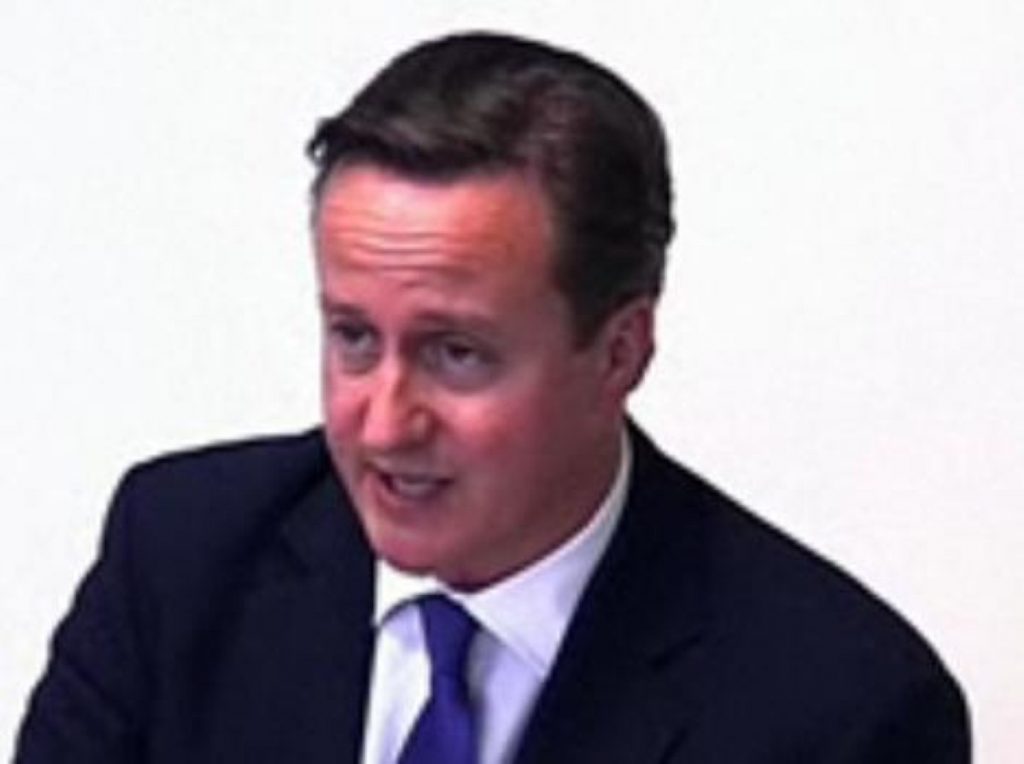Hunt aftermath: PM asked to abandon ministerial shield
Downing Street should relinquish its power to trigger investigations into ministerial misbehaviour, MPs have accepted.
Ministers did not contest a backbench motion calling for the prime minister's adviser on ministerial interests to be empowered to begin his own investigations – despite frontbencher Nick Hurd making clear he opposed the reform from the despatch box.
A Commons source told politics.co.uk that the government was inclined to oppose the motion, but allowed it to pass because the motion only "calls on" ministers to implement the recommendation.
Committee chair Bernard Jenkin, a Tory backbencher, led this afternoon's debate. He backed the findings of Pasc's March report, which argued for changes to be made to make the ministerial interests adviser "independent in a meaningful sense".


Jenkin asked MPs: "How can any prime minister be seen to be objective when he has to make judgements about colleagues that could have far-reaching political consequences?"
David Cameron generated intense controversy by refusing to refer culture secretary Jeremy Hunt's handling of the BSkyB bid to Alex Allan. He argued that Hunt's appearance before the Leveson inquiry provided sufficient scrutiny.
The prime minister was happy to refer Conservative party chairman Sayeeda Warsi to Allan over a relatively minor expenses scandal for which she was subsequently cleared, however.
The Pasc committee's findings, which have been endorsed by 18 select committee chairs, propose giving the adviser the power to initiate an investigation into prima facie breaches of the ministerial code.
Jenkin pledged that the Pasc committee would hold a further inquiry into the ministerial code in the future – and pledged to continue calling for the adviser to be made truly independent until his committee gets its way.
But fellow Conservative MP Mark Reckless defended the status quo, arguing that the prime minister appointed ministers and that they are solely accountable to him or her.
"It puts a huge constitutional weight on the ministerial code which it is entirely unsuited for," he told the Commons.
Speaking for the government, Hurd underlined the principle that the prime minister is the "ultimate judge" of the standards of behaviour expected of the minister.
"Ministers only remain in office for so long as they retain the confidence of the prime minister," he told MPs.
"He or she decides and is accountable to parliament for those decisions."
Labour's frontbencher Gareth Thomas was unclear on where the opposition stood. He said he had an open mind on the proposal, but added: "This seems to me a debate borne out of frustration with the prime minister's handling of the ministerial code."
Earlier, Jenkin had said public criticism of Cameron's decision to shield Hunt from an investigation by Allan could have been avoided if the public was confident that the adviser could instigate his own probes, however.
He called the Commons clashes over Hunt's conduct "one of the most unpleasant and acrimonious debates I have ever witnessed" and claimed boosting public confidence was critical.
"It is important for public confidence in government that all watchdogs are seen to be independent and effective," he pressed.
Downing Street published an exchange of letters between Cameron and Alex Allan at the height of the recent controversy in which the pair tried to justify the prime minister's decision.
Allan stated: "The fact that there is an ongoing judicial inquiry probing and taking evidence under oath means that I do not believe that I could usefully add to the facts in this case though I remain available should circumstances change or new evidence emerge."












